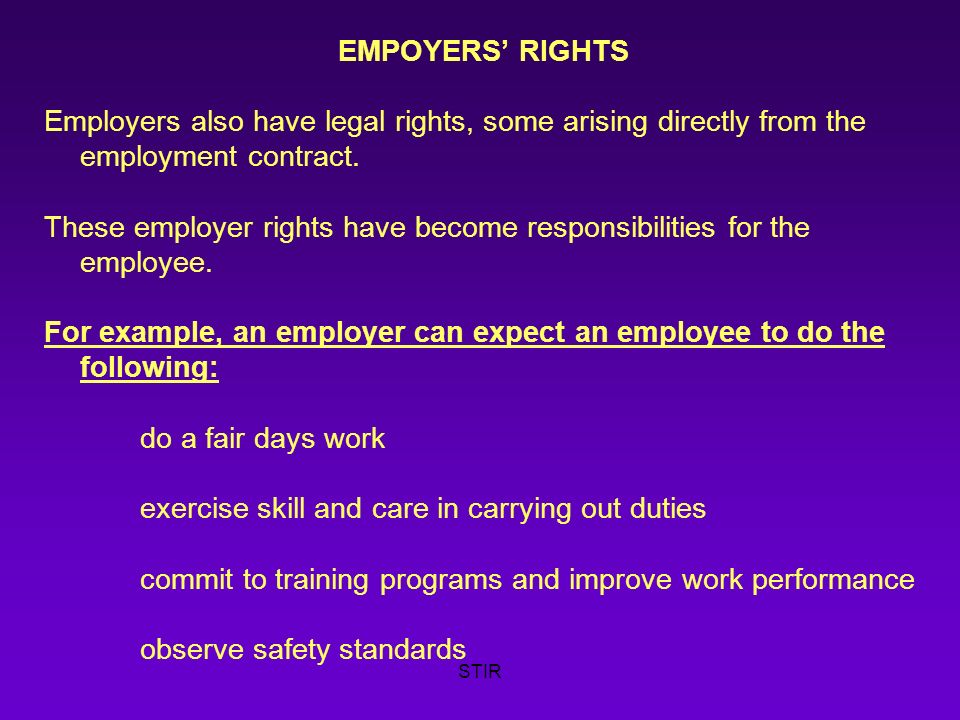Employee Rights And Responsibilities Examples
A business can only be as strong or efficient as the employees who carry out daily operations and work together to solve problems. But an individual employee's list of duties and responsibilities extends far beyond the basic job description. Some duties apply to all jobs, while others are specific to certain types of positions.
Employee rights arise from federal and state laws that, over time, have established various rules that govern the employer-employee relationship. More broadly viewed, the phrase is often used to refer to rights not explicitly mentioned in law but inferred from legal protections.
Background
Many of an employee's duties are listed in a job description. Employers generally reveal the full job description during an interview or training process. As an employee, you're responsible for understanding your job description as well as knowing who to ask for help or explanation. This may mean becoming familiar with company policies or completing on-the-job training to learn first-hand how your job fits into the business as a whole.

Components
An employee's duties include tasks specific to an industry. For example, if you work in an industrial setting such as a factory, you'll need to understand and comply with workplace safety laws. Some companies enforce codes of conduct that limit which topics you can discuss while on the job, or how you interact with colleagues. Every employee has a responsibility to make others feel comfortable in the workplace as well as a duty to be respectful and accept instructions from managers and senior employees.
Effects
Employee List Of Duties
Anyone who works for an employer and receives a wage is also responsible for paying taxes. Each state has its own income tax policy to go along with the federal tax policies that apply to all employees. As an employee you must allow your employer to withhold a portion of your wages as tax, and to file an income tax return to determine whether you owe additional tax or should receive a refund from the government.
Warning
Employees who perform work outside the scope of their duties may be beneficial to their employers, but they may also cause serious problems by doing so. For example, workers who use machinery without the proper training or clearance may be able to speed up the pace of work, but put themselves and others at risk or personal injury in the process. Union labor agreements delineate which tasks each worker is responsible for performing; employers who ask employees to handle even simple tasks outside of their job description might violate union agreements.
Enforcement
Employers and governments have several tools for enforcing employee duties and responsibilities. The government's tax code prescribes fines or imprisonment for employees who neglect to report income or submit the appropriate taxes. Employers can use the threat of termination to enforce an employee's duties or eliminate workers who fail to live up to the requirements of their jobs. Finally, employers may use performance evaluations to educate employees about how well they fulfill their duties and how they can improve in the future.
- Goodshoot RF/Goodshoot/Getty Images